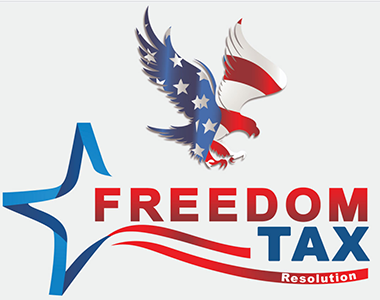Strategies for Financial Resilience: Tackling Back Taxes Head-On
Dealing with back taxes can be a daunting task, especially when faced with penalties and interest imposed by tax authorities. In this comprehensive guide, we will explore the intricacies of back taxes, understand the reasons behind penalties, and discuss effective strategies to navigate this complex landscape.
Understanding the Reasons for Penalties and Interest
Unpaid Taxes
Penalties for unpaid taxes are a direct consequence of failing to fulfill one’s financial obligation to the government. The IRS imposes penalties to encourage timely payment and deter non-compliance. Unpaid tax penalties typically accrue on the outstanding balance, compounding the financial burden.
To avoid unpaid tax penalties:
- Stay Informed: Regularly check tax deadlines and stay informed about any changes in tax laws that may affect your obligations.
- Use Electronic Payment Methods: Utilize electronic payment methods for faster and more accurate transactions, reducing the risk of errors.
Underpayment of Estimated Taxes
Underpayment penalties are triggered when individuals with significant sources of income not subject to regular withholding, such as self-employment income, fail to make sufficient estimated tax payments. Proper estimation of tax liability is crucial to avoiding penalties.
Strategies to avoid underpayment penalties include:
- Accurate Income Estimation: Make precise income estimates to determine the appropriate amount for quarterly estimated tax payments.
- Quarterly Reviews: Regularly review your income and adjust estimated payments quarterly to reflect any changes.
Filing Late Returns
Late filing penalties can be incurred regardless of whether you owe taxes or are due a refund. These penalties emphasize the importance of adhering to filing deadlines, even if you are unable to pay the full amount owed. Late filing penalties compound over time, adding to the overall tax debt.
Tips for avoiding late filing penalties:
- Set Reminders: Mark tax deadlines on your calendar and set reminders to ensure timely filing.
- File for an Extension: If necessary, file for an extension to avoid late filing penalties. However, remember that this does not extend the time to pay any taxes owed.
Strategies to Avoid Penalties and Interest
Timely Payment
Paying taxes on time is fundamental to avoiding penalties and interest. For those facing financial constraints, making partial payments can be a viable strategy to reduce the overall amount owed and minimize interest accrual.
- Partial Payments: If unable to pay the full amount, make partial payments to show good faith and reduce the interest that would otherwise accumulate.
- Explore Payment Plans: Investigate installment agreements with tax authorities to establish a structured plan for paying off the tax debt over time.
Explore Installment Agreements
Installment agreements provide a structured path for taxpayers to pay off their tax debt over an extended period. However, understanding the terms and conditions is crucial to successful navigation.
- Apply Promptly: Apply for an installment agreement as soon as you realize you cannot pay the full amount, as early application may increase your chances of approval.
- Understand Terms: Familiarize yourself with the terms and conditions of the installment agreement, including any associated fees, to avoid surprises.
Requesting Penalty Abatement
Penalty abatement is an option in certain circumstances, allowing taxpayers to seek forgiveness for imposed penalties. Providing a reasonable cause and demonstrating a history of compliance is key to a successful abatement request.
- Provide a Reasonable Cause: Clearly articulate the reasons for non-compliance in your penalty abatement request and provide evidence of any factors beyond your control.
- Demonstrate Compliance: Showcase a history of compliance to strengthen your case for penalty abatement.
Dealing with Back Taxes, Penalties, and Interest
Seek Professional Assistance
Navigating back taxes often requires professional guidance, especially in complex situations. Hiring a tax professional or accountant can provide valuable insights and assistance in understanding available options.
- Hire a Tax Professional: Engage a tax professional to assess your specific situation, provide expert advice, and guide you through the complexities of tax regulations.
- Consider Tax Relief Services: In cases of significant tax debt, explore reputable tax relief services that can negotiate with tax authorities on your behalf.
Offer in Compromise
An offer in compromise allows taxpayers to settle their tax debt for less than the full amount owed, providing a potential lifeline for those facing severe financial hardship.
- Demonstrate Financial Hardship: Clearly demonstrate your inability to pay the full amount due to financial hardship, providing supporting documentation.
- Complete the Application Accurately: Ensure all required information is accurately provided in the offer in the compromise application to prevent unnecessary delays.
Get Involved with Your Penalties and Interest
Empower yourself to navigate back taxes confidently and avoid unnecessary penalties. Take the following steps:
- Assess Your Tax Situation: Evaluate your current tax standing. Are there outstanding payments or potential issues that need attention?
- Review Your Filing Schedule: Ensure you are aware of upcoming tax deadlines. Mark them on your calendar and set reminders to avoid late filing penalties.
- Explore Payment Options: If facing financial challenges, consider exploring installment agreements or other payment options available through tax authorities.
- Consult a Tax Professional: For personalized advice and assistance, consult with a tax professional or accountant. They can provide tailored guidance based on your specific circumstances.
- Stay Informed: Keep yourself informed about changes in tax laws and regulations. Regularly check official sources such as the IRS website for updates.
Remember, taking proactive steps now can help you better manage your tax obligations and mitigate potential issues in the future. If you have specific questions or concerns, don’t hesitate to seek professional advice.
Navigating penalties and interest on back taxes requires a proactive and informed approach. By understanding the reasons behind penalties and implementing effective strategies, taxpayers can better manage their tax liabilities and minimize the financial impact of back taxes. For personalized advice, it’s recommended to consult with a tax professional.
Posted by Editor.


